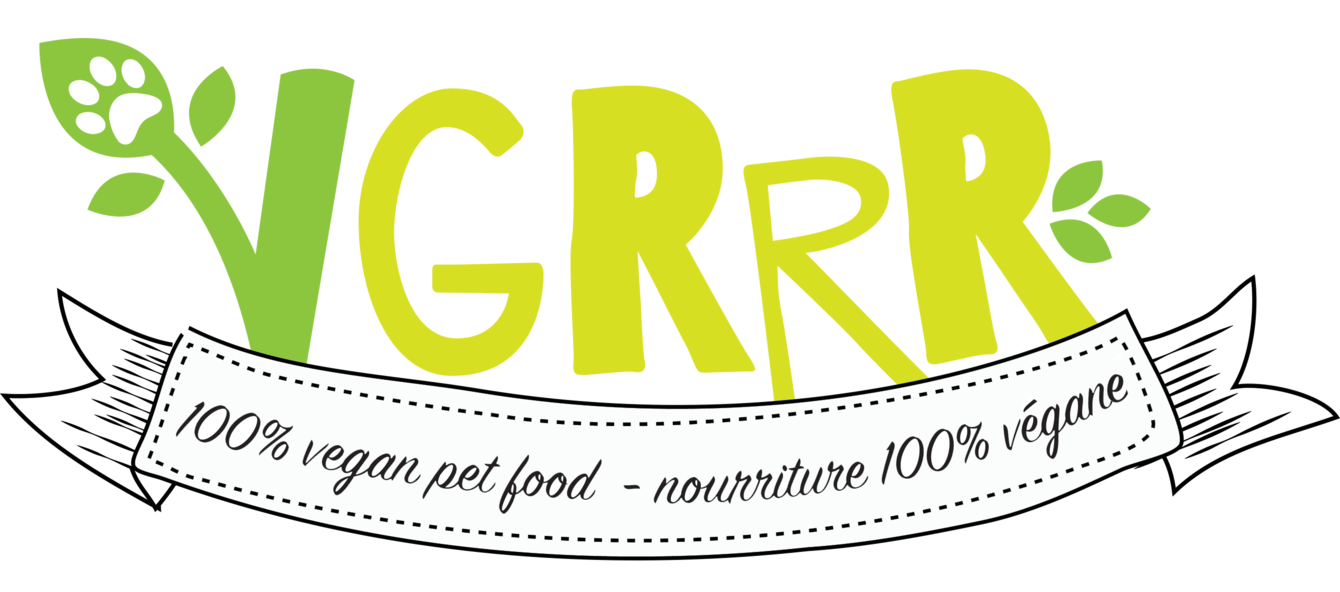In many vegan households, pet food is usually the last meat-based item to be eliminated. Pet nutrition is a very sensitive subject among vegans, who end up divided in two “camps”: in favor of plant-based food for their pets, or completely against. Outside of vegan circles, anyone feeding their dog or cat a vegan diet is highly stigmatized. How can we break this stigma? A good first step would be to bust the common myths about vegan pets.
Myth: Cats are obligate carnivores and must be fed meat in order to survive.
Fact: While it is true that cats are hunters by nature and require many nutrients primarily found in meat, scientific progress has made it possible to produce vegan kibble containing all these nutrients. For example, taurine is essential to cats’ health, but it can be produced in synthetic form. Same goes for B12 and arachidonic acid, but these nutrients can also be derived from bacterial cultures and plants such as kelp. Vegan pet owners should turn to a trusted brand of plant-based kibble and never, ever attempt preparing vegan cat food at home—unless they have consulted with their vet and can add the right supplements to the homemade diet.
Myth: Dogs and cats cannot produce cellulase to digest the cellulose and carbohydrates in plant foods, so a vegan diet places undue burden on their digestive system.
Fact: For starters, dogs are omnivores, rather than obligate carnivores. Aside from meat, they have evolved eating scraps from their owners’ meals. A dog’s digestive tract is well adapted to digesting plant matter. Another problem with this argument? According to veterinary nutritionist Cailin R. Heinze, no mammals produce the enzyme cellulase, which is why they cannot digest plants high in cellulose. Vegetables, grains and legumes do not contain enough cellulose to hinder digestion in dogs and cats.
Myth: Some articles on the Internet report how vegan cats died due to nutrient deficiency. Isn’t it animal cruelty to make your dog or cat vegan?
Fact : These unfortunate incidents are often caused by home-cooked pet foods. Of course, kitty will get sick on a limited diet of potatoes, rice milk and pasta! Dogs and cats require nutrients found in meat, such as arachidonic acid and taurine. This is why responsible pet owners must choose a pet food approved by the Association of American Feed Control Officials (AAFCO) or other national authorities on pet foods, such as Ami and Evolution. Be compassionate and give your pet the nutrients they require!
Myth: Due to its unnatural aspect, a vegan diet for cats and dogs is far from an ideal choice.
Fact: Especially today, the words « natural » and « good » are almost considered as synonyms. Pet owners strive to imitate nature by feeding their cat or dog meat, but are they being consistent? It is definitely not natural to raise a feline or canine indoors, feed them industrial kibble at regular intervals, and give them vaccines for its good health. However, pet owners do not give these behaviors a second thought. Since we’ve strayed so far from what nature intended for cats and dogs, the idea of nutritionally-complete vegan kibble should not be considered absurd. Fun fact : meat-based industrial kibbles are also supplemented with synthetic vitamin A, L-carnitine, B12 and more!
